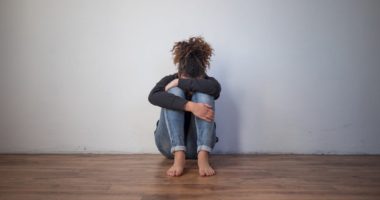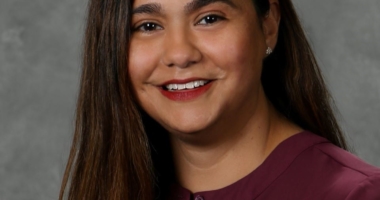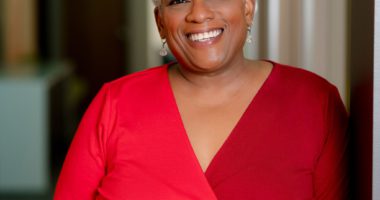Q&A with Erika McConduit, Louisiana Director, The Education Trust
Why are you so passionate about social justice in education?
Social justice is something that has been a part of me throughout my life. I grew up in New Orleans. My mother was a children’s book writer, and my father was a lifelong educator, so education was ingrained in me. My dad was a principal in Orleans Parish Public School system for 30 years before he retired. He started as a teacher and moved up through the ranks. My personal education journey is unique nationally, but perhaps not so unique locally in that my father was a big advocate for public education as evidenced by his lifelong career, but I went to Catholic schools from pre-K through 12th grade. This was not uncommon to middle-class Blacks in New Orleans. Even as passionate as my family was about public education, we still fell into that mold. That in and of itself is evidence of the fact that we had challenges in our public school system, and sadly many challenges still remain. Access to a high quality education is something that my parents fought for, and it has remained a part of me.
How do you see education connecting to the larger system of social injustice?
All things have to start with a strong and quality education. Unfortunately, we always seem to play catch up when it comes to educating all of our kids; we’re constantly in a rat race to try to close gaps. But, what would it look like if we made sure that the gaps never existed? Making sure that we have a strong quality education system from birth to post-secondary, and a continuum of supports in place, is critical. I believe that all systems are connected, and while having a strong quality education is at the base and the root of it, we cannot ignore the fact that all of the systems with whom communities interact must work in concert. If you have a strong education, you also then must have access to opportunities; you must have access to affordable housing and quality healthcare. For me, it’s making sure that we start by addressing the root causes of things that we know continue to plague our communities throughout their lifetime.
What are some of the biggest challenges you think that Louisiana students are facing?
There are a few things: number one, we can start with the opportunity gap. We don’t have a system in our state that provides early quality educational options to all young people, so we will continually have to address closing a gap from the onset. Likewise, we still have a lot of inequities that continue to persist throughout our K-12 system. Black and Brown children do not have access to the most experienced teachers. In urban areas, students don’t have teachers that reflect the demographics of the students in their classrooms. They don’t have access to the most challenging courses, courses that we know definitively connect to life outcomes and life opportunities. One example is calculus: African American students in our public school systems don’t have access to calculus at the same rate as their peers. We know calculus has a direct connection to a student’s performance on the ACT. A student’s performance on the ACT is directly connected to whether or not they can access our state TOPS scholarship program. It also connects to which colleges they are qualified to attend, and all of those things of course then connect to life outcomes and life opportunities from a career standpoint. You can drill it down to a student not having access to physics, calculus, advanced placement courses, and all of those things directly connect to life opportunities later on.
What issues do students of color in Louisiana particularly face?
Black and Brown students still are disproportionately impacted from discipline. They are suspended at higher rates. They are expelled at higher rates. They are also subjected to more alternative education settings than any other group in our state. Let’s talk about poverty in Louisiana, and this is where you cannot ignore the other systems that exist, that directly impact a child’s ability to perform in school. If a child is from a poor family, you must consider whether they have access to quality housing, healthcare, transportation, activities, etc. They are confronted with so much more. Violence is still at an all-time high. If you look at a city like New Orleans, and even a city like Baton Rouge, the number of shootings, not even deaths, shootings that occur expose our kids to so much more. The trauma that our children come to class with obviously impacts their ability to perform. We also have a lack of mental health services. We are in a poor state; we have a lot of issues to confront. And, if we just simply ignore all of those extraneous factors that obviously impact a student’s ability to be successful in school, we’re only halfway addressing the problem.
So what keeps you hopeful in this work?
What keeps me hopeful is the resilience and the fight of our people. Think about the devastating impact of Hurricane Katrina and the unprecedented flooding in Baton Rouge that happened last year. This is an on-going existence for us. It amplifies the spirit of the people in Louisiana. We don’t give up; we always look to reinvent ourselves. We pick ourselves up, we dust ourselves off, and we get to work.
There are really passionate people who are committed to the success of our citizens and our state. Whether that is creating our own solutions or trying not to reinvent the wheel and looking at best practice models, we are unafraid to take on change. We have to. Something like Katrina makes you understand that change is inevitable, whether you want it or not. We are much less risk averse now as a community because we know we have the ability to adapt and to change. That gives me hope.
Finally, what gives me hope in education is that Louisiana put together a progressive state plan. We stepped up to the challenge with ESSA, and we created an aggressive plan to try to combat some of the inequities and challenges that we know continue to persist. That also gives me hope. Our accountability system, while hard to adjust to in real life and in real practice, is actually keeping us more honest. It will give us a more accurate picture of how our students are truly performing and allow us the real opportunity to put the appropriate improvements in place to see the outcomes that we want for all of our students.
How do you think this role at Ed Trust is going to help advance what you’re hoping to see in Louisiana?
Ed Trust has always been a leader in putting policy for Black and Brown children first. What is exciting about this opportunity for me is to have the chance to just focus on that. Being the president and CEO of the Urban League has been incredible and life-changing because we’ve touched so many areas, but I am deeply passionate about education. Having an opportunity to work with such a well-respected and effective organization like Ed Trust, and to take everything that Ed Trust has done so positively throughout the country and bring that to Louisiana is truly an opportunity of a lifetime.









